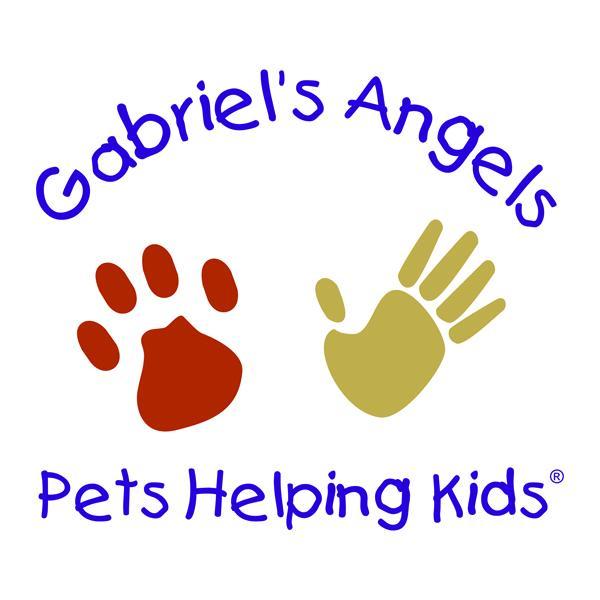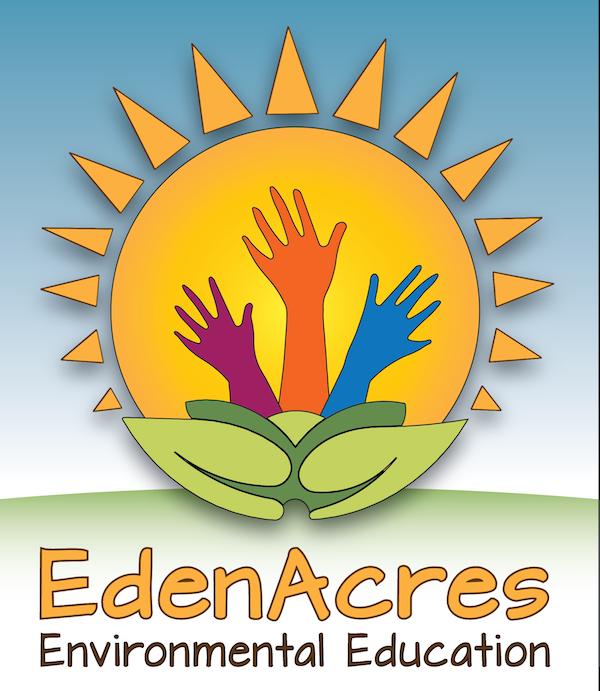Mission: Gabriel's Angels mission is to deliver healing pet therapy to at-risk children, nurturing their emotional development and enhancing the quality of their lives forever.
Target demographics: Gabriel’s Angels serves children from infant to 18 years old residing in crisis nurseries, domestic violence shelters, homeless shelters, group homes for teens and residential treatment centers. We serve all children equally without regard to gender, ethnicity, income level or other factors. Gabriel’s Angels estimates that 35.5% are Hispanic, 31.7% Caucasian, 21.6% African-American, 7.8% Native American, 2.7% mixed ethnicity, and 0.4% Asian or Pacific Islander. Although we are not provided with family economic information from our partnering agencies, we believe that most would be classified as low to extremely low income. Arizona statistics on children residing in foster care indicate the average reimbursement per child per year is $13,334.We also know that nearly one in five (21%) of Arizona’s children live in poverty with 10% of those living in extreme poverty. Sadly, issues of abuse and neglect often accompany this socio-economic factor.
Direct beneficiaries per year: 14,600
Geographic areas served: Arizona - Maricopa, Pima, Pinal, Cochise and Yavapai Counties
Programs: In order for Gabriel’s Angels to provide services, it is vital to have trained therapy teams. Therapy Teams are volunteers consisting of a handler and pet. Therapy Teams must first complete an evaluation, conducted by an independent agency, the Delta Society or Therapy Dogs, Inc. To successfully complete the registration process, the animals must pass a health examination and provide proof that inoculations are current. Finally, the Team must pass two evaluations; one that assesses the handler’s control over their pet and one that assesses the animals’ temperament and obedience skills. Gabriel’s Angels supports our potential volunteer Teams through this process, but is not involved in their training, evaluation, or registration. Once the Team passes the evaluation they are registered with the Delta Society or Therapy Dogs, Inc. All fees are paid by the volunteer. Teams complete this process prior to being accepted as a Gabriel’s Angels’ Pet Therapy Team. Before a team is assigned to a partner facility, the handler must clear an FBI fingerprint/background check, provide verifiable references, and attend Gabriel’s Angels’ Orientation/New Team Training. In this training, volunteers are informed of polices and procedures, plus are coached on the particular behaviors of the age group with which they will be working. Since all of our Teams work with children who are in crisis, it is necessary to prepare them for what they will experience. The Therapy Team is then assigned to a partner agency. This placement is dependent on the request from the facility, availability of the volunteer Team, personality of the owner and the personality of the Therapy Dog. As we strive for a permanent placement every time, this matching process is not taken lightly. The new Team is accompanied by a Gabriel’s Angels’ Volunteer Coordinator for the first one or two visits. Team visitation is typically on a consistent bi-weekly schedule. Bi-weekly visitation seems to match volunteer and pet availability the best. However, Gabriel’s Angels’ goal is to provide weekly Pet Therapy visitation at each facility; therefore a minimum of two Teams are needed at each facility to insure weekly visits. When the Pet Therapy Team visits, dogs are on leash and wear a Gabriel’s Angels purple vest. Handlers tell us consistently that donning the vest creates a change in their dogs’ behavior; they know they are “going to work. ” Much like an assistive dog for a person with a disability, these dogs truly work with the children, often spending the rest of the day in well-deserved repose. The therapy visit is relatively unstructured, following a Montessori-based educational belief that children will convey what they need to accomplish during the visit. For example, children might brush the dogs’ teeth, allowing children to draw the parallel between this activity and self-care needed to maintain personal good health. Or, children might observe that the dog is panting, an indicator that a drink of water might be needed. A water bottle and bowl appear and children are encouraged to provide a drink for the dog. The children are learning to recognize a need in another and respond positively in filling that need. Or, as a final example, children are taught how to give a command, such as “sit” and reward the dog for obeying the command. How empowering for an abused child to tell a 100 pound dog to “sit” and be obeyed! An abused child feels they have no control in their life; working with the therapy dog helps children begin to develop a sense of confidence. After the team has some field experience, the handler returns for in-depth training for the ACT (Animals and Children Together) Learning Project. ACT was developed as a result of an independent evaluation of our Pet Therapy visitation effectiveness on impacting the key behaviors needed for abused children to develop socially. The activities that are engendered in this project help our volunteer Pet Therapy Teams reach children on a deeper level. Included in the training, which lasts between three and four hours, are modules that help the volunteer understand the emotional effects of child abuse, the core behaviors being impacted, and the important role volunteer teams play. Volunteer Teams are introduced to and trained on the effective use of over 25 engaging activities they may employ on their visits. The ACT Program is leveled in an age-appropriate manner. Noah’s Tails is geared towards infants to children age 5; Penny’s Pals for 6 to 12 year olds; and Gabe’s Gang for teenagers. Each ACT activity bag contains an instant camera. Handlers are trained to “catch the children doing something good” and snap those photos. For children who have grown to believe that they can do nothing right, these photos are extremely valuable in providing tangible images that they can and are capable of doing right and well. In addition to our ACT training, we work closely Social Work schools to offer training to our volunteers on the CPS system and the circumstances to which many of these children have been exposed. This training helps our volunteers better understand the behaviors and needs of this children as well as the importance of consistent Pet Therapy visits. Gabriel’s Angels provides consistent Pet Therapy visits at 107 partner agencies, 83 in Maricopa County and 24 in Tucson. The average visit lasts anywhere from one to one and one-half hours. Ideally, the Therapy Team works best with groups of 10 to 12 children. There is no cost to the participating agency to receive therapy visits for their children. Partner agencies commit to the visitation schedule and provide assistance in program evaluation. Clearly, it is vital for Gabriel’s Angels to recruit, train, reward and retain volunteer Pet Therapy Teams to maintain our current level of service and work towards meeting the additional demand. To accomplish these goals, maintaining service to existing partner agencies and strategically partnering with new agencies, Gabriel’s Angels has an immediate need for at least 170 additional Pet Therapy Teams statewide. We choose to invest in the development of our volunteer Pet Therapy Teams and are proud that our volunteer to staff ratio is currently 13:1.
Target demographics: Gabriel’s Angels serves children from infant to 18 years old residing in crisis nurseries, domestic violence shelters, homeless shelters, group homes for teens and residential treatment centers. We serve all children equally without regard to gender, ethnicity, income level or other factors. Gabriel’s Angels estimates that 35.5% are Hispanic, 31.7% Caucasian, 21.6% African-American, 7.8% Native American, 2.7% mixed ethnicity, and 0.4% Asian or Pacific Islander. Although we are not provided with family economic information from our partnering agencies, we believe that most would be classified as low to extremely low income. Arizona statistics on children residing in foster care indicate the average reimbursement per child per year is $13,334.We also know that nearly one in five (21%) of Arizona’s children live in poverty with 10% of those living in extreme poverty. Sadly, issues of abuse and neglect often accompany this socio-economic factor.
Direct beneficiaries per year: 14,600
Geographic areas served: Arizona - Maricopa, Pima, Pinal, Cochise and Yavapai Counties
Programs: In order for Gabriel’s Angels to provide services, it is vital to have trained therapy teams. Therapy Teams are volunteers consisting of a handler and pet. Therapy Teams must first complete an evaluation, conducted by an independent agency, the Delta Society or Therapy Dogs, Inc. To successfully complete the registration process, the animals must pass a health examination and provide proof that inoculations are current. Finally, the Team must pass two evaluations; one that assesses the handler’s control over their pet and one that assesses the animals’ temperament and obedience skills. Gabriel’s Angels supports our potential volunteer Teams through this process, but is not involved in their training, evaluation, or registration. Once the Team passes the evaluation they are registered with the Delta Society or Therapy Dogs, Inc. All fees are paid by the volunteer. Teams complete this process prior to being accepted as a Gabriel’s Angels’ Pet Therapy Team. Before a team is assigned to a partner facility, the handler must clear an FBI fingerprint/background check, provide verifiable references, and attend Gabriel’s Angels’ Orientation/New Team Training. In this training, volunteers are informed of polices and procedures, plus are coached on the particular behaviors of the age group with which they will be working. Since all of our Teams work with children who are in crisis, it is necessary to prepare them for what they will experience. The Therapy Team is then assigned to a partner agency. This placement is dependent on the request from the facility, availability of the volunteer Team, personality of the owner and the personality of the Therapy Dog. As we strive for a permanent placement every time, this matching process is not taken lightly. The new Team is accompanied by a Gabriel’s Angels’ Volunteer Coordinator for the first one or two visits. Team visitation is typically on a consistent bi-weekly schedule. Bi-weekly visitation seems to match volunteer and pet availability the best. However, Gabriel’s Angels’ goal is to provide weekly Pet Therapy visitation at each facility; therefore a minimum of two Teams are needed at each facility to insure weekly visits. When the Pet Therapy Team visits, dogs are on leash and wear a Gabriel’s Angels purple vest. Handlers tell us consistently that donning the vest creates a change in their dogs’ behavior; they know they are “going to work. ” Much like an assistive dog for a person with a disability, these dogs truly work with the children, often spending the rest of the day in well-deserved repose. The therapy visit is relatively unstructured, following a Montessori-based educational belief that children will convey what they need to accomplish during the visit. For example, children might brush the dogs’ teeth, allowing children to draw the parallel between this activity and self-care needed to maintain personal good health. Or, children might observe that the dog is panting, an indicator that a drink of water might be needed. A water bottle and bowl appear and children are encouraged to provide a drink for the dog. The children are learning to recognize a need in another and respond positively in filling that need. Or, as a final example, children are taught how to give a command, such as “sit” and reward the dog for obeying the command. How empowering for an abused child to tell a 100 pound dog to “sit” and be obeyed! An abused child feels they have no control in their life; working with the therapy dog helps children begin to develop a sense of confidence. After the team has some field experience, the handler returns for in-depth training for the ACT (Animals and Children Together) Learning Project. ACT was developed as a result of an independent evaluation of our Pet Therapy visitation effectiveness on impacting the key behaviors needed for abused children to develop socially. The activities that are engendered in this project help our volunteer Pet Therapy Teams reach children on a deeper level. Included in the training, which lasts between three and four hours, are modules that help the volunteer understand the emotional effects of child abuse, the core behaviors being impacted, and the important role volunteer teams play. Volunteer Teams are introduced to and trained on the effective use of over 25 engaging activities they may employ on their visits. The ACT Program is leveled in an age-appropriate manner. Noah’s Tails is geared towards infants to children age 5; Penny’s Pals for 6 to 12 year olds; and Gabe’s Gang for teenagers. Each ACT activity bag contains an instant camera. Handlers are trained to “catch the children doing something good” and snap those photos. For children who have grown to believe that they can do nothing right, these photos are extremely valuable in providing tangible images that they can and are capable of doing right and well. In addition to our ACT training, we work closely Social Work schools to offer training to our volunteers on the CPS system and the circumstances to which many of these children have been exposed. This training helps our volunteers better understand the behaviors and needs of this children as well as the importance of consistent Pet Therapy visits. Gabriel’s Angels provides consistent Pet Therapy visits at 107 partner agencies, 83 in Maricopa County and 24 in Tucson. The average visit lasts anywhere from one to one and one-half hours. Ideally, the Therapy Team works best with groups of 10 to 12 children. There is no cost to the participating agency to receive therapy visits for their children. Partner agencies commit to the visitation schedule and provide assistance in program evaluation. Clearly, it is vital for Gabriel’s Angels to recruit, train, reward and retain volunteer Pet Therapy Teams to maintain our current level of service and work towards meeting the additional demand. To accomplish these goals, maintaining service to existing partner agencies and strategically partnering with new agencies, Gabriel’s Angels has an immediate need for at least 170 additional Pet Therapy Teams statewide. We choose to invest in the development of our volunteer Pet Therapy Teams and are proud that our volunteer to staff ratio is currently 13:1.
info@gabrielsangels.org
727 East Bethany Home Road Suite C100, Phoenix, AZ 85014
602-266-0875

Others
Phoenix












































